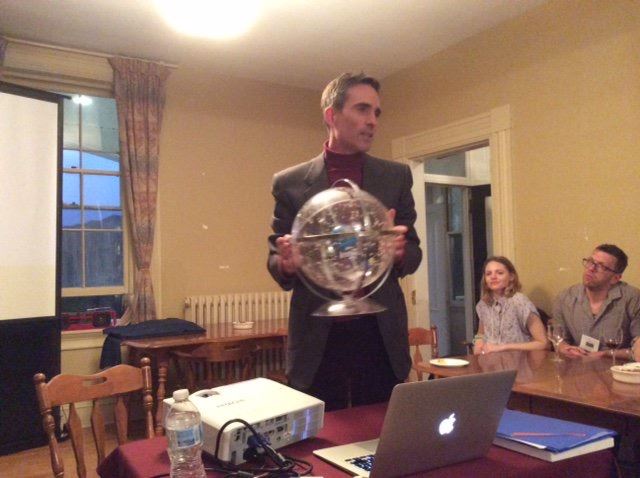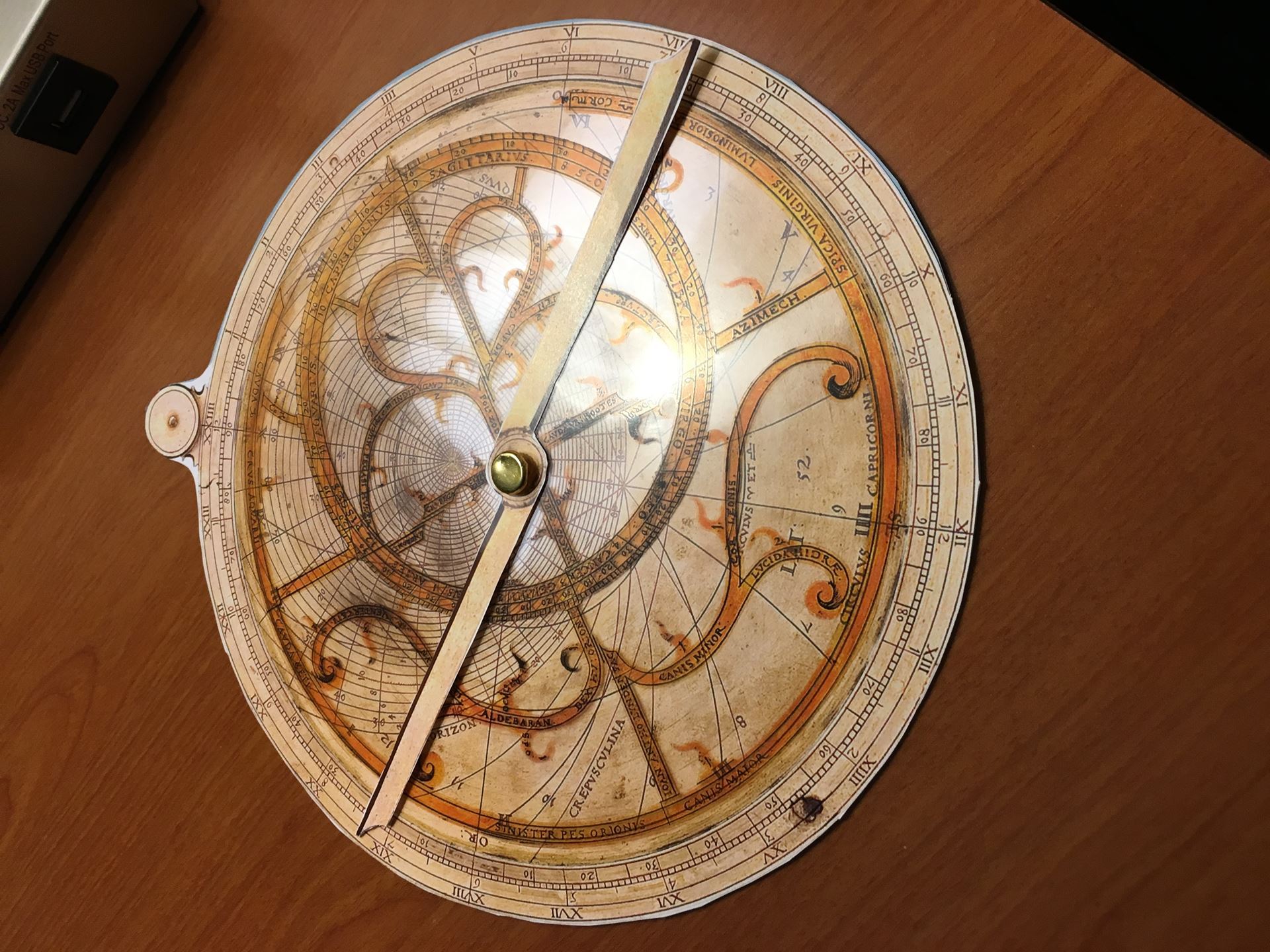Medieval Studies and the TRC at the joint AMA/AMEMG conference
A couple of weeks ago I had the pleasure of attending a joint conference of the Atlantic Medieval Association and the Atlantic Medieval and Early Modern Group in Sackville, New Brunswick. It started out in an almost-can’t-see-to-drive downpour and ended in a glorious fall day aflame with autumn colours.
The conference is about as small as you can get, and I almost didn’t go this year because I – and I’m sure I’m not alone in this – was swamped with teaching and admin. But small conferences like the AMA are so important. I attended some excellent papers, of course, and actually got the chance to make an astrolabe – Dr. Samuel Gessner of the University of Lisbon was the keynote speaker, and the “Hands-on History of the Astrolabe” he presented was not a metaphor! (My arts-and-crafts skills are distinctly rusty, I might add.) The real value, though, was in making connections with other medievalists. Increasingly, many of us are the lone medievalists at our universities, and academic societies provide a welcome respite from the isolation and loneliness that can entail.


I was also “pricked” – to use a Middle English word – by a panel responding to the calls to action from Canada’s Truth and Reconciliation Commission. Hitherto I had felt a bit helpless in the face of the calls: yes, we can do more as institutions to support Indigenous students; yes, we can support calls for Indigenous literatures and histories, and work on making them mainstream – but honestly, I thought, as a
medievalist, there’s not much I can do in
my field. Saying “Indigenous peoples were around in the Middle Ages too and so we should study Indigenous cultures from 1000-1500” seemed a bit facile, to my way of thinking (never mind that it is imposing colonizing Western European periodization on the world, and risks cultural appropriation as well).
But the panel got me thinking about the ways in which Canadian medievalists can seriously and genuinely respond to the TRC in our scholarship as well as our institutions. We talked about incorporating Indigenous knowledge practices both in our classrooms, rethinking the top-down lecture approach, and in our scholarship, applying Indigenous theories and approaches to canonical texts. We talked about ways to avoid falling into the trap of “empty words” and “rote repetition” in our acknowledgements of the Indigenous territories our universities are built upon. We talked about countering the alt-right appropriation of medieval images and medievalism. And after the conference Lauren Beck compiled and circulated a bibliography of Indigenous literary and historical theory and methods.
In the coming months I will be posting more about these kinds of topics – both ways to counter the alt-right in our classrooms, and ways of thinking about Indigenous theory in our scholarship. I’d also like to know how you are responding to the TRC, not only in your institution but in your scholarship and teaching. And any Indigenous resources you can send me would be great as well.
Kathy Cawsey
President, CSM/SCM
